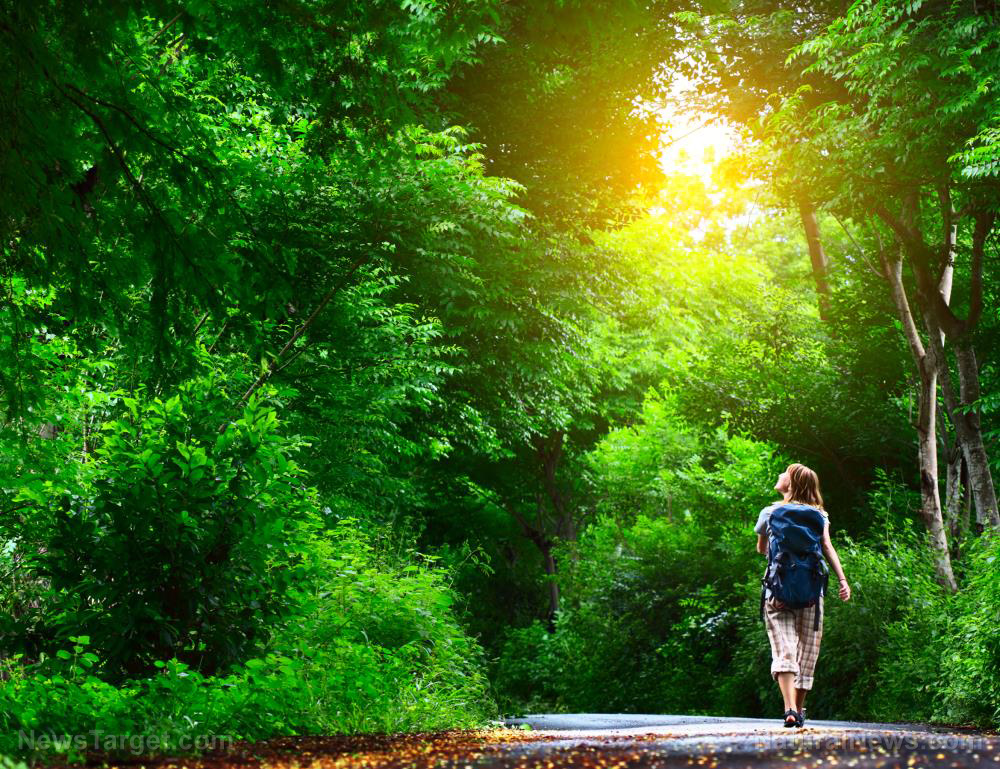Nature and longevity: Living near green spaces found to promote public health
03/29/2021 / By Divina Ramirez

City dwellers living near green spaces may have a lower risk of dying early, according to a recent review by the Barcelona Institute for Global Health (ISGlobal) in Spain, in collaboration with Colorado State University (CSU) and the World Health Organization (WHO).
Published in The Lancet Planetary Health, it showed that increasing green spaces in urban environments is linked to a reduction in all-cause mortality. The researchers concluded that recommendations to increase and manage green spaces ought to be considered as strategic public health interventions.
Green spaces linked to a lower risk of death
The researchers looked at nine longitudinal studies that explored the relationship between residential green spaces and mortality. The studies had over eight million participants from seven countries, including the United States and Canada.
The researchers looked at satellite images to measure the distance between participants’ homes and any green spaces nearby. They also studied the participants’ health records and set premature all-cause mortality as a health outcome.
Their results showed that an increase in greenness around homes is linked to a reduced risk of premature death. In particular, the researchers found a four percent reduction in premature mortality for every two percent increase in surrounding greenness within 500 meters or less of the participants’ homes.
Lead author David Rojas-Rueda from ISGlobal and CSU said their results support policies to increase green spaces in urban areas as a strategy to improve public health. Coauthor Mark Nieuwenhuijsen of ISGlobal also noted that urban greening programs can help increase biodiversity in urban spaces. In addition, these programs could make cities more sustainable and livable.
Rojas-Rueda and his colleagues are now using their results to estimate the number of premature deaths that could be prevented in cities worldwide.
Green spaces help improve physical, mental health
Half of the world’s population lives in cities where there is often a lack of green space. Multiple studies suggest that living near green spaces has positive effects on an individual’s overall health. These effects include lower stress levels, improved mental health and a reduced risk of serious health problems like cardiovascular disease.
Experts suggest these benefits can be attributed to what green spaces in crowded cities offer. For instance, parks offer free space where people can relax or exercise. Apartment complexes and other urban housing buildings often have little to no space for recreation.
City dwellers are more susceptible to obesity and obesity-related problems because their diets consist of readily available, ultra-processed foods or fast foods. Giving people a suitable place where they can exercise or do recreational activities could help steer them off the path to obesity.
Furthermore, green spaces can help improve overall health. A study published recently in Scientific Reports showed that people who spend at least two hours in Nature per week are more likely to report higher levels of health and well-being than people who spend less or no time at all in Nature.
This finding is true even for people living in urban areas with little green space, which suggests that it is the time spent in Nature that is beneficial to an individual and not just proximity to green spaces or their availability.
Overall, existing studies on green spaces provide strong evidence that people who live near green spaces and spend some time in Nature enjoy better overall health than those who live in crowded cities away from green spaces. (Related: Green space makes you happy: A childhood spent in nature decreases risk of later depression.)
Learn more about the impact of green space on mental health at Mental.news.
Sources include:
Submit a correction >>
Tagged Under:
anti-obesity, environment, fight obesity, green spaces, health science, heart health, longevity, mental health, natural health, nature, prevention, research
This article may contain statements that reflect the opinion of the author
RECENT NEWS & ARTICLES
LongevityScienceNews.com is a fact-based public education website published by Longevity Science News Features, LLC.
All content copyright © 2018 by Longevity Science News Features, LLC.
Contact Us with Tips or Corrections
All trademarks, registered trademarks and servicemarks mentioned on this site are the property of their respective owners.



















